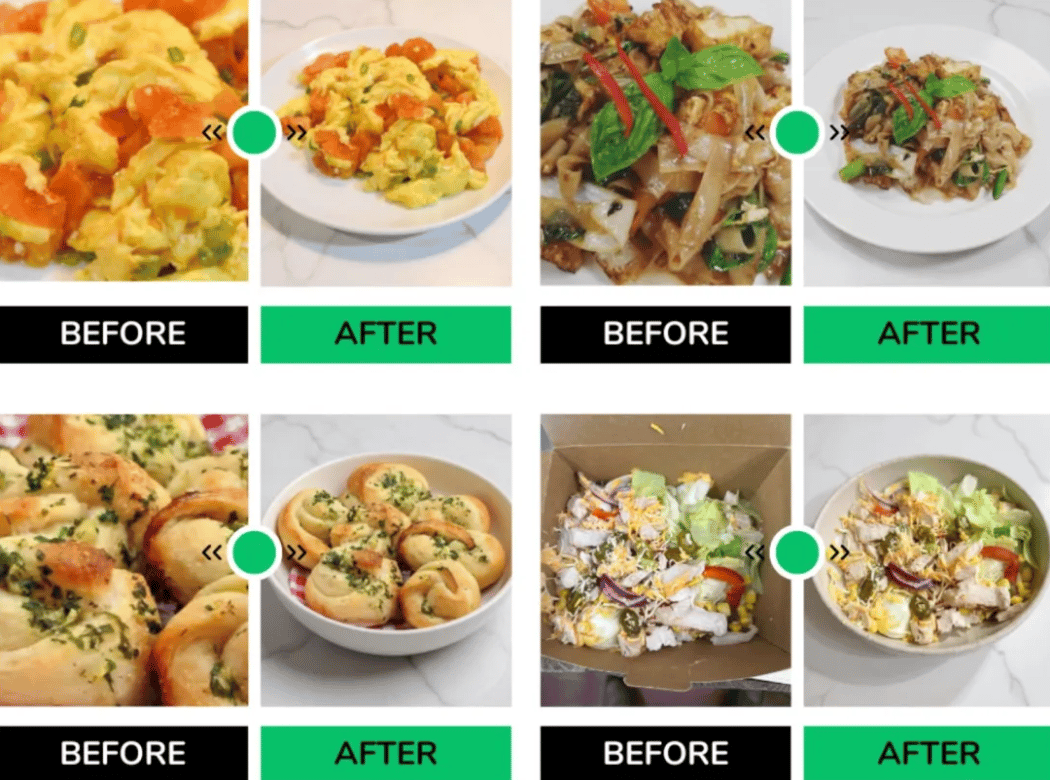
You could be anywhere, but you’re here—reading the stuff your group chat will pretend they already knew. 💬
Marketing ideas for marketers who hate boring
The best marketing ideas come from marketers who live it. That’s what The Marketing Millennials delivers: real insights, fresh takes, and no fluff. Written by Daniel Murray, a marketer who knows what works, this newsletter cuts through the noise so you can stop guessing and start winning. Subscribe and level up your marketing game.
🤯 MYSTERY AI LINK 🤯
(The mystery link can lead to ANYTHING AI-related: tools, memes, articles, videos, and more…)
Today’s Menu
Appetizer: Zuckerberg: “AI systems are improving themselves” 😳
Entrée: Google launches “Google Earth AI” 🌎
Dessert: Uber Eats gets AI overhaul 🍔
🔨 AI TOOLS OF THE DAY
🎤 Singify: Remove vocals from any song. → Check it out
🎥 Guidey: Add modern onboarding tours to your product in minutes. → Check it out
ZUCKERBERG: “AI SYSTEMS ARE IMPROVING THEMSELVES” 😳
What’s new? Meta CEO Mark Zuckerberg revealed that the company’s latest AI systems have shown early signs of self-improvement—an important step toward the development of superintelligent machines.
Want the details? In a new policy paper, Zuckerberg claimed Meta’s AI models are beginning to enhance their own performance, albeit slowly. While he didn’t elaborate on technical details, the statement marks a bold signal that Meta sees superintelligence—AI that surpasses human capabilities—as within reach. The memo emphasizes Meta’s aim to use this technology to empower individuals—rather than replace all types of work—and stresses the importance of carefully managing safety risks.
“Over the last few months we have begun to see glimpses of our AI systems improving themselves. The improvement is slow for now, but undeniable. Developing superintelligence is now in sight.”
Why should you care? Self-improving AI is a major milestone in the race toward more powerful (and potentially dangerous) systems. With Meta already influencing billions of users through platforms like Facebook and Instagram, how it handles this next chapter of AI development could shape how safe, creative, or risky our tech future becomes.
GOOGLE LAUNCHES “GOOGLE EARTH AI” 🌎
What’s new? Google has launched Google Earth AI, a suite of powerful geospatial AI models and datasets designed to address global environmental and societal challenges.
How does this work? Google Earth AI builds on Google’s recent advances in geospatial reasoning and includes models that can predict weather, detect wildfires, and forecast floods with impressive accuracy. It also includes tools to analyze population patterns, urban mobility, and public health trends. These models are already behind features millions use—like real-time flood and wildfire alerts in Google Search and Maps—and are now being made available across Google Earth, the Maps Platform, and Google Cloud.
Why is this significant? This is more than just a tech upgrade—it’s a toolkit for tackling real-world crises. From climate change to public health, Google Earth AI equips governments, researchers, and businesses with insights that can lead to smarter decisions and faster, data-driven action.
UBER EATS GETS AI OVERHAUL 🍔
What’s new? Uber Eats is rolling out AI-powered tools to enhance menus, food photos, and customer communication.
What are the new features? Restaurants can now use generative AI to create more enticing menu descriptions and automatically summarize customer reviews. AI will also help upgrade blurry or poorly lit food photos by improving resolution, adjusting lighting, and even digitally re-plating the food. If a dish lacks an image, customers can upload one themselves during the review process—and in select countries, they might even earn Uber credits if their photo is published. A new Live Order Chat also lets restaurants message customers directly to confirm details or solve problems before food goes out.
Why should you care? These updates aim to make your food delivery experience more accurate, informative, and visually appealing. But because AI-generated images and descriptions can sometimes mislead, customers may need to stay skeptical. Still, clearer photos and faster communication could mean fewer surprises when your food arrives.
SALTY SATURDAY 🧂
Who’s salty in AI this week?
One person who’s bringing the salt this week is Ed Zitron, a noted critic of the industry. Zitron has described the current AI boom as a financial bubble reminiscent of the dot‑com crash—arguing that key players like OpenAI and Anthropic are losing billions and that most of what's hyped as “agentic AI” is just marketing fluff around rebranded chatbots. He warns there’s no scientific basis for believing we're closing in on artificial general intelligence (AGI), and predicts a sharp investor pullback if major players like Nvidia or cloud providers suffer earnings disappointments.
HAS AI REACHED SINGULARITY? CHECK OUT THE FRY METER BELOW:
What do ya think of this latest newsletter?
Your feedback on these daily polls helps us keep the newsletter fresh—so keep it coming!
Big investors are buying this “unlisted” stock
When the founder who sold his last company to Zillow for $120M starts a new venture, people notice. That’s why the same VCs who backed Uber, Venmo, and eBay also invested in Pacaso.
Disrupting the real estate industry once again, Pacaso’s streamlined platform offers co-ownership of premier properties, revamping the $1.3T vacation home market.
And it works. By handing keys to 2,000+ happy homeowners, Pacaso has already made $110M+ in gross profits in their operating history.
Now, after 41% YoY gross profit growth last year alone, they recently reserved the Nasdaq ticker PCSO.
Paid advertisement for Pacaso’s Regulation A offering. Read the offering circular at invest.pacaso.com. Reserving a ticker symbol is not a guarantee that the company will go public. Listing on the NASDAQ is subject to approvals.






